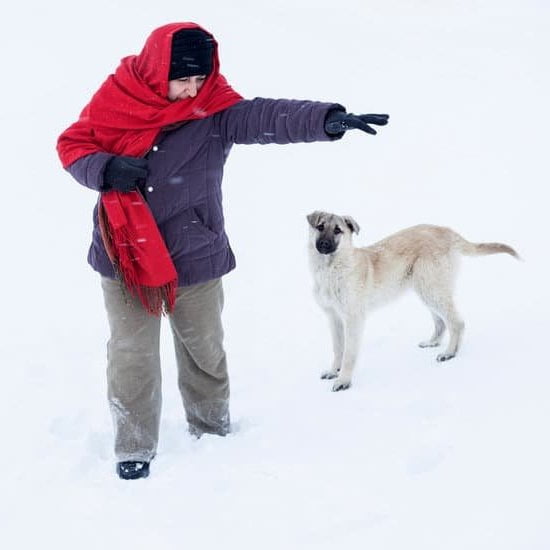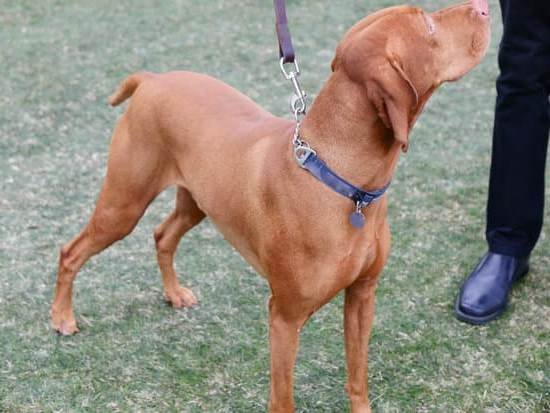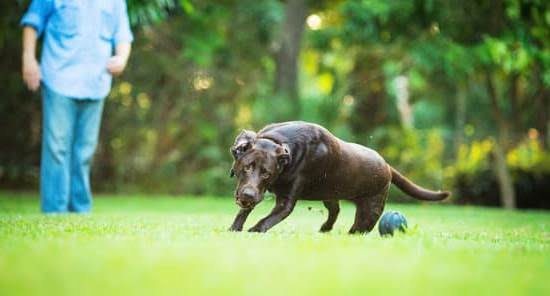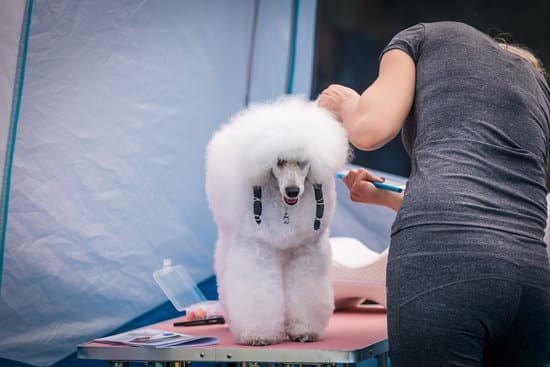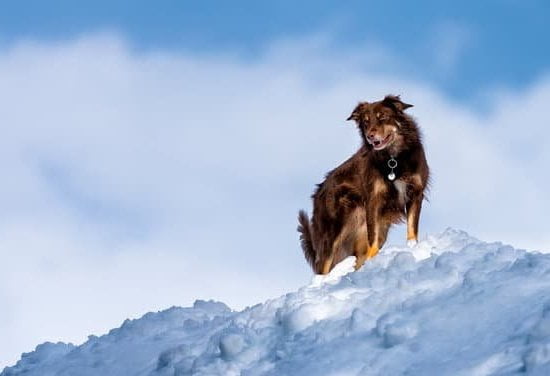Are you wondering how to potty train a Bichon Frise dog? Known for their playful and affectionate nature, Bichon Frises are a popular breed among dog owners. However, like any other dog breed, potty training is an essential aspect of their care and upbringing. Understanding the unique potty training needs of Bichon Frises is crucial in ensuring successful training and a happy coexistence with your furry companion.
Bichon Frises are small, intelligent, and social dogs that require consistent and patient potty training. Their playful disposition makes them eager to please their owners, but they can also be prone to stubbornness if not handled correctly during potty training. In this article, we will explore the specific methods and techniques that are effective in potty training Bichon Frise dogs.
To successfully potty train your Bichon Frise, preparation is key. This includes setting up a designated potty area in your home and gathering the necessary supplies such as puppy pads or outdoor potty equipment. Consistency is also paramount in establishing a routine for potty breaks and positive reinforcement. Understanding your Bichon Frise’s body language and signals for when they need to go is essential in effectively communicating with them during the training process.
Additionally, crate training can be used as a tool for potty training your Bichon Frise. Accidents will happen, but knowing how to handle them without causing setbacks in the training process is important. Throughout it all, patience and persistence are crucial to maintaining progress in your dog’s potty training journey.
Preparation
When it comes to potty training your Bichon Frise, preparation is key. Setting up a designated potty area for your dog will help establish a routine and make the training process more effective. Here are some steps to help you set up a designated potty area for your Bichon Frise:
- Choose a specific spot in your yard or outdoor space where you want your Bichon Frise to relieve themselves.
- Clear the area of any debris or objects that may distract your dog during potty breaks.
- Consider using a patch of grass, gravel, or even pee pads as the designated potty area for your Bichon Frise.
In addition to setting up a designated potty area, gathering necessary supplies is also important for successful potty training. Here are some essential supplies that you will need:
- Leash: Use a leash to take your Bichon Frise to the designated potty area and keep them focused on their business.
- Treats: Rewarding your Bichon Frise with treats when they successfully go potty in the designated area will reinforce good behavior.
- Cleaning Supplies: Accidents are inevitable during the potty training process, so be prepared with enzymatic cleaners to effectively clean up messes and eliminate odors.
By preparing a designated potty area and gathering necessary supplies, you will be set up for success when it comes to potty training your Bichon Frise. These initial steps will create a structured environment for both you and your dog, making the training process more organized and effective. Understanding how to potty train a Bichon Frise dog involves careful planning and preparation before diving into actual training sessions.
Consistency Is Key
Potty training a Bichon Frise can be a challenging but ultimately rewarding process. Consistency is key when it comes to establishing a routine for potty breaks and positive reinforcement. The first step in potty training your Bichon Frise is to understand their natural instincts and potty needs as a breed. Bichon Frises are known for being intelligent and trainable, but they can also be stubborn at times.
One crucial aspect of consistency in potty training your Bichon Frise is to establish a regular schedule for potty breaks. This means taking your dog out first thing in the morning, after meals, before bedtime, and at regular intervals throughout the day. By doing so, you will help your Bichon Frise associate specific times of the day with potty breaks, making it easier for them to learn where and when to go.
Positive reinforcement is another important element of consistency in potty training your Bichon Frise. Whenever your dog successfully goes potty in the designated area, make sure to praise and reward them with treats or verbal praise.
This will create a positive association with going potty in the right place and encourage them to continue exhibiting good behavior. Remember that patience and persistence are essential during this process; every dog learns at their own pace, so it’s important not to get discouraged if there are setbacks along the way.
| Aspect | Detail |
|---|---|
| Potty Training Schedule | Establish regular times for potty breaks throughout the day |
| Positive Reinforcement | Use treats or verbal praise to reward good potty behavior |
| Patience and Persistence | Be patient with setbacks and continue reinforcing good habits consistently |
Communication
Bichon Frise dogs, like many other breeds, have their own unique way of communicating when they need to go potty. Understanding and being able to read your Bichon Frise’s body language and signals is crucial for successful potty training. By paying close attention to their behavior, you can effectively anticipate when they need to relieve themselves and take appropriate action.
Understanding Body Language
One of the first steps in learning to read your Bichon Frise’s signals for when they need to go potty is understanding their body language. Some common signs that your Bichon Frise may need to go include sniffing the ground, circling, pacing, whining, or suddenly becoming restless. It’s important to observe these behaviors and create an association between them and the need to go outside.
Establishing Signals
In addition to recognizing your Bichon Frise’s natural body language, you can also establish specific signals or cues as part of your potty training routine. For example, you can teach your dog to use a specific spot in the house as a cue for needing to go outside. This can be helpful in situations where verbal communication is not possible and can also strengthen the bond between you and your pet.
Paying Attention and Patience
Paying attention and patience play an integral role in learning how to potty train a Bichon Frise dog by reading their body language and signals. It may take time for both you and your dog to establish a consistent communication system, but with patience and persistence, you can effectively communicate with each other regarding their potty needs.
Remember that every dog is different, so it’s essential to pay close attention to your individual Bichon Frise’s habits and signals as you work on successful potty training strategies.
Crate Training
To begin crate training, it’s important to choose the right size crate for your Bichon Frise. The crate should be just big enough for them to stand up, turn around, and lie down comfortably. If the crate is too large, your dog may be inclined to use one end as a bathroom area. Once you have the appropriate crate, place comfortable bedding inside and encourage your dog to explore it on their own.
When introducing the crate, start by leaving the door open and allowing your Bichon Frise to go in and out freely. You can encourage them to enter with treats or toys. Gradually work towards having your dog spend short periods of time in the crate with the door closed, always making sure to praise and reward good behavior.
Using a consistent schedule for both meal times and potty breaks will help in associating the crate with good habits. Dogs are naturally clean animals and will avoid soiling their living space if given frequent opportunities to go outside. When done correctly, this method helps teach your Bichon Frise self-control when it comes to bathroom habits while also providing them with a secure den-like environment that they can find comfort in.
| Key Points | Data |
|---|---|
| Effective tool | Crate can reduce likelihood of accidents |
| Choose appropriate size | Just big enough for dog’s comfort |
| Consistent schedule | To associate good habits with the crate |
Accidents Happen
Stay Calm and Clean Up
When potty training your Bichon Frise, it’s important to remember that accidents are bound to happen. Instead of getting frustrated or angry, it’s crucial to stay calm and clean up the mess right away. Use a pet-friendly cleaner to thoroughly remove any lingering scent, as dogs may be attracted back to the same spot if they can still smell their previous accident.
Avoid Punishment
Punishing your Bichon Frise for having an accident is not an effective method of potty training. Instead of teaching them where they should go, punishment can create anxiety and fear, making the training process more difficult. It’s best to continue with positive reinforcement and encourage good behavior rather than punishing accidents.
Reassess the Routine
If accidents are happening frequently, it may be a sign that something needs to change in your potty training routine. Take a step back and evaluate if you’re providing enough opportunities for your Bichon Frise to go outside or use their designated potty area. Additionally, consider if there have been any significant changes in their environment or schedule that could be impacting their ability to hold it. Adjusting the routine accordingly can help minimize future accidents.
By handling accidents with patience and understanding, you can prevent them from becoming setbacks in your Bichon Frise’s potty training journey.
Patience and Persistence
Potty training a Bichon Frise dog requires patience and persistence. This breed is known for being intelligent and eager to please, but they can also be stubborn at times. It’s important to stay calm and consistent throughout the potty training process in order to achieve successful results.
One of the key aspects of potty training a Bichon Frise is to establish a routine and stick to it. This means taking them out to their designated potty area at the same times every day, whether it’s first thing in the morning, after meals, or before bedtime. Consistency helps them understand what is expected of them and reinforces good potty habits.
It’s also crucial to remain patient during the training process. Accidents will happen, especially during the early stages of training. Instead of getting frustrated, it’s important to stay calm and continue with positive reinforcement.
When your Bichon Frise does successfully go potty outside, be sure to praise them and give them a treat as a reward. This positive reinforcement will help them understand that going potty outside is what you want from them. A calm and patient approach will ultimately lead to success in potty training your Bichon Frise pup.
Remember, every dog learns at their own pace, so it’s important not to rush or force the process. By staying patient and persistent, you will build a stronger bond with your Bichon Frise while successfully teaching them good potty habits.
Beyond the Basics
As your Bichon Frise grows older, it is important to continue reinforcing good potty habits that were established during the initial training process. Here are some tips for maintaining these habits as your furry friend matures:
- Stick to the Routine: Consistency is key when it comes to potty training, even as your Bichon Frise gets older. Continue to take them out at the same times each day, such as first thing in the morning, after meals, and before bedtime.
- Monitor Water Intake: Pay attention to your dog’s water consumption, especially in the evening. Limiting their access to water a couple of hours before bedtime can help reduce the likelihood of accidents during the night.
- Stay Active: Regular exercise can help regulate your Bichon Frise’s bathroom schedule and minimize the risk of accidents indoors. Aim for daily walks and playtime to keep them physically and mentally stimulated.
In addition to these tips, it’s important to pay attention to any changes in behavior or health that could affect your Bichon Frise’s potty habits. For example, if they start having accidents despite being previously well-trained, it may be a sign of an underlying medical issue that requires attention from a veterinarian.
Remember that patience and persistence are still crucial elements in maintaining good potty habits as your Bichon Frise grows older. Celebrate their successes and continue providing positive reinforcement for proper potty behavior. With dedication and ongoing support, you can ensure that your furry companion remains well-trained throughout their life.
Ultimately, maintaining good potty habits is about nurturing a strong bond with your Bichon Frise through consistent care and understanding of their needs. By following these tips and remaining attentive to their signals, you can enjoy a harmonious relationship with your well-trained pet for years to come.
Troubleshooting
Bichon Frise dogs are known for their loving and affectionate nature, but like any breed, they require potty training to establish good habits. While the process can be challenging at times, it’s essential to understand common obstacles that may arise and how to overcome them. By addressing these challenges head-on, you can set your Bichon Frise up for success and a lifetime of good potty habits.
One common challenge in potty training Bichon Frise dogs is dealing with accidents in the house. Despite your best efforts, accidents are bound to happen during the training process. It’s important not to scold or punish your dog for these accidents, as this can create fear and anxiety around potty training. Instead, focus on reinforcing positive behaviors by providing praise and rewards when your Bichon Frise successfully goes in their designated potty area.
Another challenge that many Bichon Frise owners face is inconsistency in their training approach. Consistency is key when it comes to potty training, so it’s important to establish a routine and stick to it.
This means taking your dog out at the same times each day, offering plenty of opportunities for bathroom breaks, and closely monitoring their behavior for signs that they need to go. By maintaining a consistent approach, you will help your Bichon Frise understand what is expected of them and reinforce good habits.
Additionally, some Bichon Frise dogs may exhibit stubborn behavior during potty training. This can be frustrating for owners, but it’s important to remain patient and persistent. If you encounter resistance from your dog, consider adjusting your training methods or seeking guidance from a professional trainer who has experience with Bichon Frise dogs.
With patience and dedication, even the most stubborn Bichon Frise can learn successful potty habits. Overall, understanding these common challenges and taking proactive steps to overcome them can make the potty training process smoother for both you and your beloved Bichon Frise.
Learning how to potty train a Bichon Frise dog may seem like an overwhelming task at first glance but breaking down this process into manageable steps will make the whole experience much more bearable for both you as well as our furry friend.
Conclusion
In conclusion, potty training a Bichon Frise takes time and patience, but the bond formed through this process is invaluable. By understanding the needs of this breed and being consistent with training methods, you can successfully teach your Bichon Frise where to potty.
Establishing a routine, using positive reinforcement, and paying attention to your dog’s signals are all crucial in this process. It’s important to remember that accidents will happen, but how you handle them can make all the difference in the success of the training.
Additionally, crate training can be a useful tool in potty training a Bichon Frise. It provides them with their own safe space while also helping to prevent accidents when you are unable to supervise them. As your Bichon Frise grows older, it’s important to maintain good potty habits by continuing to keep a consistent routine and providing plenty of opportunities for bathroom breaks.
In the end, successfully potty training your Bichon Frise not only improves their quality of life but also strengthens the bond between you and your furry companion. By approaching the process with patience and persistence, troubleshooting any challenges that arise, and celebrating each milestone along the way, you can create a positive and rewarding experience for both you and your beloved pet.
Frequently Asked Questions
How Long Does It Take to Housebreak a Bichon?
Housebreaking a Bichon Frise can take anywhere from 4 to 6 months, but it ultimately depends on the individual dog and their consistency in training. Positive reinforcement and patience are key.
Are Bichons Difficult to Train?
Bichons are known to be intelligent and eager to please, making them generally easy to train. However, they can have a stubborn streak, so consistent training with positive reinforcement is important.
What Is the Hardest Dog to Potty Train?
Some of the hardest dogs to potty train include breeds like Dachshunds, Chihuahuas, and Basset Hounds. These breeds may be more difficult due to their strong-willed nature or small bladder size, requiring extra patience and consistency in training.

Welcome to the blog! I am a professional dog trainer and have been working with dogs for many years. In this blog, I will be discussing various topics related to dog training, including tips, tricks, and advice. I hope you find this information helpful and informative. Thanks for reading!

